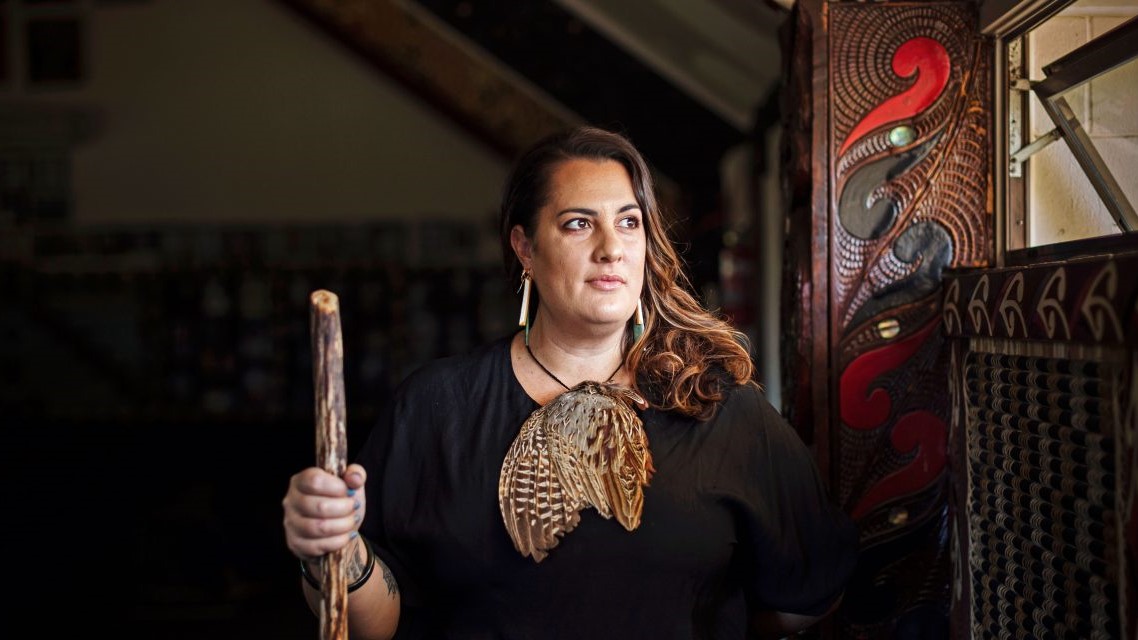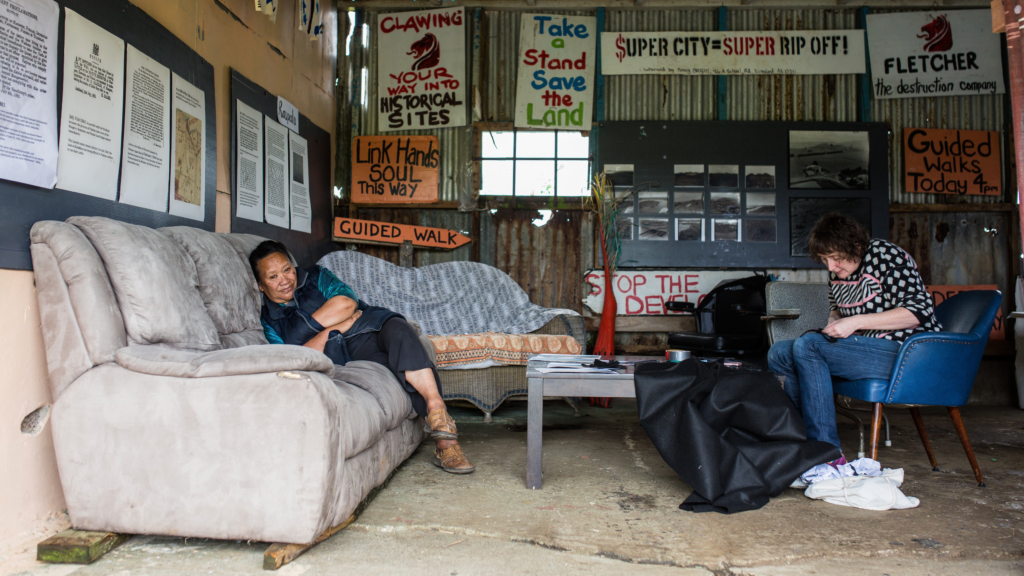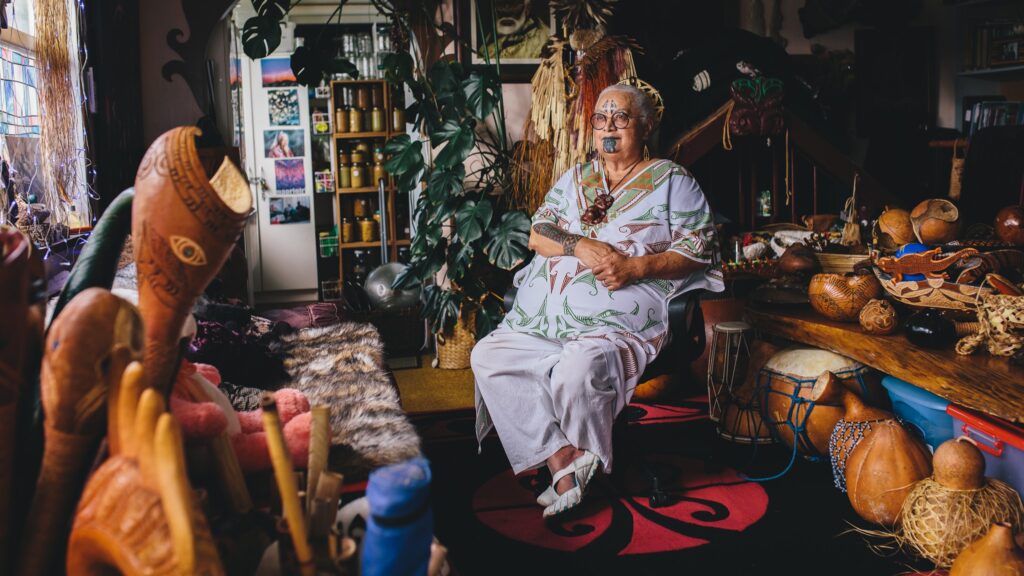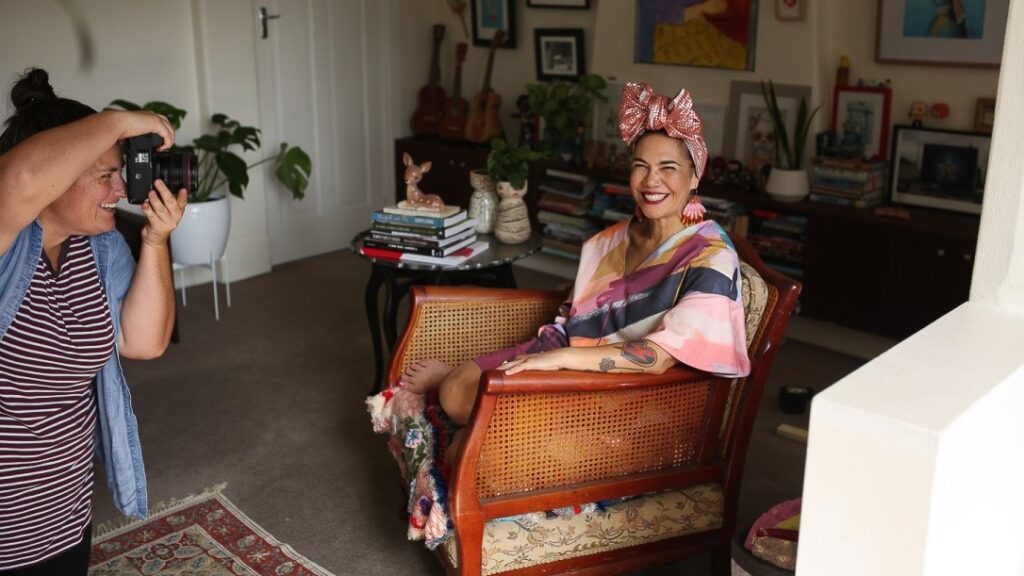Changing the narrative, one story at a time
Monday 21 February 2022 | Written by Sian Solomon | Published in Features, Go Local

Qiane Matata-Sipu. PHOTO: Becki Moss/22022001
Cook Islander Qiane Matata-Sipu is all about storytelling. In a career that spans more than 15 years, the award-winning journalist, writer, and photographer has worked with some of the world’s biggest names like Disney.
Her ability to capture and create content with an honest documentary, and story-telling style, has made her an inspiration across the Pacific and throughout indigenous communities.
Three years ago, New Zealand Geographic honoured Qiane (pronounced key-arn-ee) by presenting her with the 2018 Photographer of the Year, Progrear photo story award in Auckland. From more than 3000 entries, she was one of 52 finalists in the national competition.
She won the award with a series of images that she explained were extremely close to her heart. This included a photo story documented across 10 years about her whanau, and the campaign to stop a housing development from being built.
Winning the award was a “whole new level of validation” for the social activist. Disclosing that the images, while memorable, served as a historic record of people and place. Qiane says: “This is why I shoot. To document today, so people don’t forget it, tomorrow.
“(So) many photographers feel they need to go to far-flung countries to tell compelling stories, the New Zealand Geographic Awards show us that some of our best stories are in our own backyards.”

Qiane’s workload is seemingly packed. Not only does she work with different organisations that are focussed on positive social and environmental impact, but she is supporting them to disrupt what she describes as “the mainstream approach”. She explains that this is achieved through her impact-driven, multimedia strategy and production company called Qiane+co.
The other side of her mahi, is the non-profit social enterprise called NUKU, which is a multimedia movement amplifying the voices of indigenous women; through audio podcasts, photography, video, live events, and art exhibitions, and now a self-published book.
She says NUKU is about redefining success, showcasing the diversity of what it means to be an indigenous woman in the world today.
Next month or so, she will release a new podcast series under NUKU, following her journey and the journey of other indigenous women reclaiming their language.

“It is about showing the world who we are, and not what we’ve been told to be,” Qiane explains.
“We need(ed) to amplify indigenous women’s voices to share collective wisdom, to inspire and motivate each other; to highlight the amazing stories we have amongst us, and celebrate and learn from our lived experiences.”
She shares that this movement features one hundred successful women who are from all walks of life, doing things differently. This includes Cook Islands twin sisters and environmental champions Donna Tamaariki and Moana Tamaariki-Pohe. Three-time world long drive champion Phillis Meti is also featured as part of the NUKU100.
Qiane credits the idea for promoting their indigenous voices to intergenerational korero or talking with her late grandmother, Dawn Matata. Confiding that her small but “incredible whanau”, who is her “biggest inspirations” are the ones who have inspired her lifelong storytelling goals.

She mentions proudly that she whakapapas to Aotearoa and the Cook Islands, sharing that her Cook Islands whakapapa and family which come from her papa Joe (Jones) Matata’s side has helped shape the person she has become, and her career.
“I have so many fond memories with our Utia Matata family and our Tipokoroa Utia family. As I’ve gotten older I’ve returned a number of times with my husband and family spending time in Rarotonga and Aitutaki,” shares Qiane.
“One of my most memorable visits was in 2006 when my papa and I attended our Okiruaiti family reunion in Mangaia. To see him walk amongst the remains of the house his father was born and raised in was a powerful moment.
“Neither of us had ever been to Mangaia, and so tracing that part of our whakapapa was very special.”
Qiane shares that now, more than 20 years later, her memories of times past and family are more vivid than ever. With that in mind, and our interview coming to an end, she revealed that no amount of stories showcasing how amazing indigenous people are, including indigenous knowledge, practice, learning, and lived experiences, will ever be enough.
She adds we must remember that “our people” are the original storytellers, and that we can collectively change the narrative for our children, and their children.
“It was our people who were the original storytellers,” Qiane says.

“Our stories started in the stars, and we have to continue to share our cultural narratives through story, art, dance, oratory, for generations.
“There is always room for more of us at the table, (and) it’s not about competition. It’s about community.
“We can collectively change the narrative by sharing our story, one person at a time.”
For those who are interested in purchasing NUKU: Stories of 100 Indigenous Women, the book is available at the www.nukuwomen.co.nz/shop which offers international shipping to the Cook Islands.
The podcasts are free either on Qiane’s website www.qiane.co.nz or on Spotify, Apple Podcasts and other leading podcast stations.














































